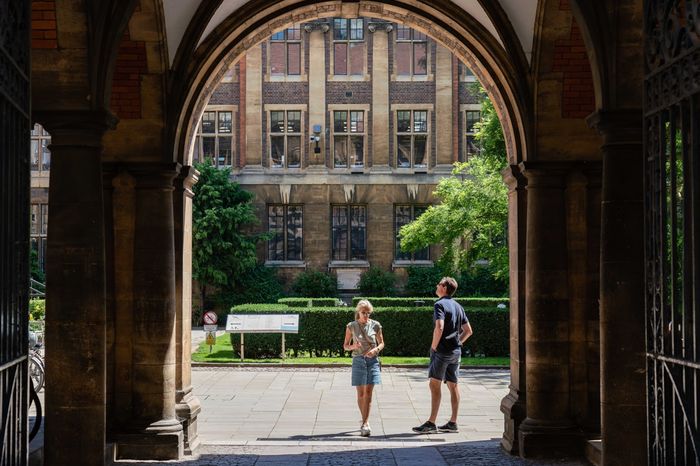Cambridge launches UK’s largest autism study
10,000 autistic people will take part in Spectrum 10K, which launches next week

Cambridge University is launching the UK’s largest study of autism next week, with 10,000 participants. The project aims to develop understanding of the condition and provide better support to autistic people.
The Spectrum 10K study, which will commence next Tuesday (31/08), will be led by researchers at Cambridge’s Autism Research Centre (ARC), alongside genetics research body the Wellcome Sanger Institute and University of California Los Angeles (UCLA).
The study aims to examine “how biological and environmental factors impact on the wellbeing of autistic individuals” and assess the diversity of the autistic spectrum, answering questions such as why some autistic people experience epilepsy or poor mental health and others do not.
There are 70,000 autistic people in the UK, needing varying levels of support. What causes this diversity in the autism spectrum is as yet unclear.
Autistic people of all backgrounds, ages, and genders will participate in the project, after completing a questionnaire and providing a DNA saliva sample by post. Health records will also be used to increase understanding of autism.
Participants can invite biological family members to participate, regardless of whether they are autistic.
The project aims to “identify types of support and treatment which alleviate unwanted symptoms and co-occurring conditions that cause autistic people distress”.
Spectrum 10K’s team is collaborating with an advisory panel of autistic individuals, parents of autistic children, clinicians and charity representatives to ensure the project is as beneficial as possible to the autistic community. 27 NHS sites are aiding in recruitment of project participants.
Dr James Cusack, who is CEO of the autism research charity Autistica, and has autism himself, said that “This project enables autistic people to participate in and shape autism research to build a future where support is tailored to every individual’s needs.”
Dr Venkat Reddy, Consultant Neurodevelopmental Paediatrician in the Community Child Health Services at Cambridgeshire and Peterborough NHS Foundation Trust stated that “there is a need to conduct further research into autism and co-occurring conditions to enable researchers and clinicians to build a better understanding of autism. I would encourage autistic individuals and their families to consider taking part in Spectrum 10K.”
The TV presenter Paddy McGuinness, who has three autistic children, is also a supporter of the project, and described the research as “important to help us understand what makes every autistic person different, and how best to support them.”
In response to “concerns over the collection and use of genetic data” in the study, Spectrum 10K announced in a statement on 27/08 that they recognised the “need to do more to explain the value of this research, the measures in place to protect your data, and other concerns.”
They further stated that they are “actively working with autistic people and will be listening to more autistic voices to address these concerns”, with website and social media updates to follow “as this work progresses.”
Recruitment for Spectrum 10K is now open, and those with a clinical diagnosis of autism can apply to participate here.
However, the study has received significant backlash from autistic people. Anna Ward, Cambridge SU's Disabled Students' Officer, told Varsity: I’d like to express my profound disappointment that Cambridge is involved in this research project. Whilst the project leaders claim to be against eugenics, attempts to find a genetic cause for autism are one step away from attempting to ‘cure’ autism, in the face of autistic communities’ insistence that such a ‘cure’ is both unwanted and essentially eugenic in intention and effect."
They also criticised the "large amounts of money" invested in the project "which self-admittedly has no real benefits for the autistic people taking part", and called its creation "when services for autistic people remain underfunded" a "disgrace".
This article was updated on 27/08 to include a statement from Spectrum 10K in response to concerns over the study, and on 03/09 to include comments from the Disabled Students' Officer.
 News / Under 3% of applicants for Cambridge academic jobs are successful7 April 2025
News / Under 3% of applicants for Cambridge academic jobs are successful7 April 2025 Features / Cambridge: where toxic productivity turns rest into a radical act8 April 2025
Features / Cambridge: where toxic productivity turns rest into a radical act8 April 2025 News / News in Brief: cats, Camelot, and construction woes6 April 2025
News / News in Brief: cats, Camelot, and construction woes6 April 2025 Comment / Cambridge’s gossip culture is a double-edged sword7 April 2025
Comment / Cambridge’s gossip culture is a double-edged sword7 April 2025 Sport / Previewing the 170th Boat Race7 April 2025
Sport / Previewing the 170th Boat Race7 April 2025





